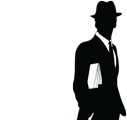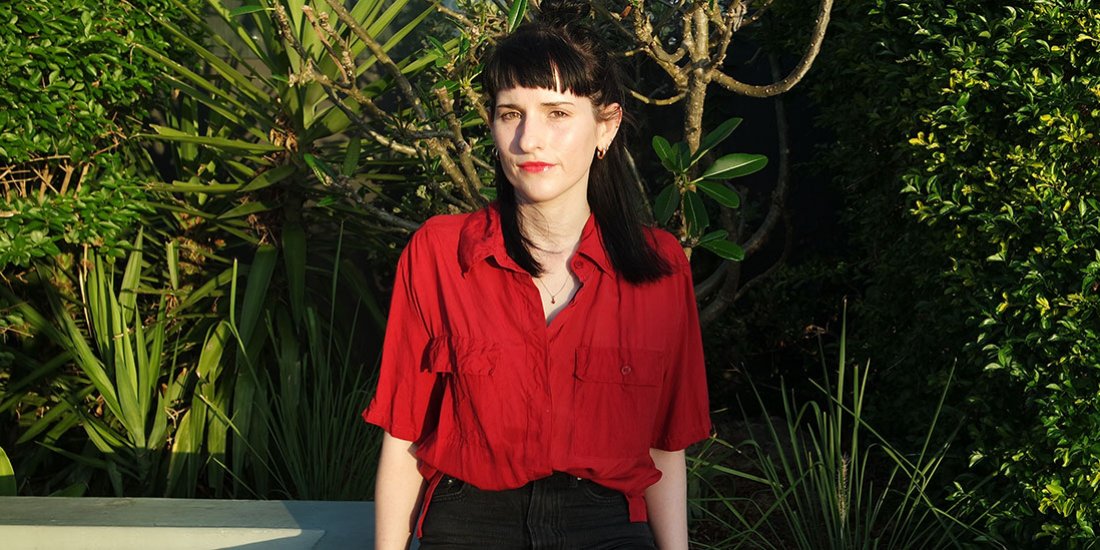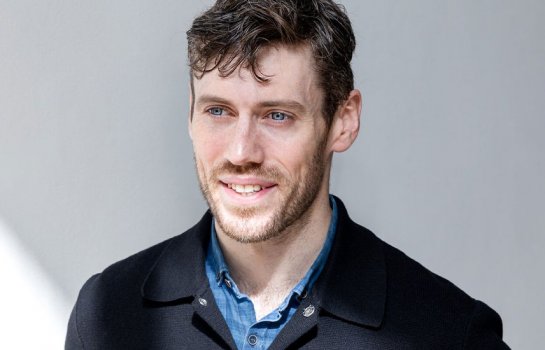Emily O’Grady, author and educator, Brisbane Writers Festival
I’m constantly baffled by how strange people can be. I love nothing more than being told gossip (either benign or juicy—I’m not fussy) about people I’ve never met ...
Author and educator Emily O’Grady has emerged as one of the leading voices in the national literacy scene. With the publication of her first novel The Yellow House in 2018, Emily left an indelible mark on the genre of outback noir, earning the then 26-year-old year old rave reviews and the prestigious Vogel’s Literary Award. Alongside writing her own novels, Emily also teaches creative writing at Queensland University of Technology and Faber Academy. This month, she will be joining Brisbane Writers Festival to talk about her latest novel Feast and its fascinating look at class and family. Before the festivities begin, we chatted to Emily about true crime, living in Brisbane and her 40-draft novel-writing process.
Your debut novel The Yellow House was such a breakout success, receiving The Australian/Vogel’s Literary Award. What was the process like then when it came to writing your second novel Feast?
I had no expectations that The Yellow House would be published and remember the experience of writing it being a joyful, somewhat naive exploration into the unknown. When I started Feast, I’d blocked out how painful the early stages can be when you’re trying to bridge the gap between how you picture the book in your head and the terrible garbage that often emerges in a first draft. Once I accepted that, I began to enjoy the challenge of wrestling the garbage into something more coherent.
You’ve said this most recent novel took 40 drafts to complete. How would you describe your experience writing a novel and your creative process?
Chaotic. I don’t have a firm writing routine or set myself word counts and deadlines to work towards. I used to berate myself for this and tell myself I lacked self-discipline, but the novels seem to get written so I guess I’m doing something right!
The upcoming panel at Brisbane Writers Festival, ‘Eat the Rich’, is set to look at the themes of class and privilege – which your latest work Feast considers. The wealthy Scottish setting of this novel is such a departure from your debut, why did you decide to base this story in the upper-echelon world?
Both my novels explore class, albeit at opposite ends of the spectrum, so I do see some similarities in terms of how they interrogate social structures and how the hand one is dealt at birth can either limit one’s options or provide a sense of limitlessness that can be harmful. With Feast, I wanted to write something radically different from my first book, though all my writing ends up being fairly grim. The characters in Feast are ridiculous, which was particularly fun to write.
Both novels meditate on the dynamics of family. What has drawn you to telling family dramas? Where do you find inspiration for these character-led stories?
I’m constantly baffled by how strange people can be. I love nothing more than being told gossip (either benign or juicy—I’m not fussy) about people I’ve never met. I don’t have a tendency to borrow these tidbits for my writing, but I suppose this speaks to a compulsive curiosity about why people behave the way they do, which is at the centre of both novels.
True crime is such a popular genre, but your debut novel chose to deal with its intergenerational legacy instead of its lead up. What inspired you to set your story in the aftermath of crime rather than the thick of it?
I used to be really into both true crime and serial killer films, but when I started writing The Yellow House almost a decade ago, these accounts tended to focus almost exclusively on the perpetrators and had a quite grotesque way of glamorising criminals. There’s a mundanity to crime that is often side-lined for the sake of a gripping narrative, and not much interest in hearing the stories of those touched by crime—the victims, or course, and their families, but also the perpetrator’s families who are often deeply traumatised, but rarely sympathised with and often ostracised themselves. I wanted to extend empathy to the ‘other’ victims of serial crime and explore the lingering effects that abject violence has on a society.
You’ve said you didn’t begin your Bachelor of Fine Arts with the intention of becoming a creative writer. When did you begin to decide to pursue writing a novel? What changed your mind?
I’d always been artistic but hadn’t done much creative writing until I was an adult. Initially, I thought I’d like to work in the publishing side of the industry, but I when I got the idea for my first book I became pretty obsessive, not only about that project but with the craft of novel writing in general.
From QUT to the Faber Academy, you teach creative writing to budding authors as well. How does teaching affect your approach to your own writing?
On a practical level, it’s useful in reminding me of basic elements of craft I might be overlooking in my own work-in-progress. The students at Faber often have had long careers in something entirely unrelated to writing and it’s interesting to see how people’s background inform the fiction they write. The students have such a wide breadth of interests so I get the best reading recommendations as well.
You represent one of the local creatives in the Brisbane Writers Festival line-up. What’s your relationship with Brisbane like? Has it changed with the success of your novels?
I’m currently working on a Gothic novel that takes place in the aftermath of the 2010/11 QLD floods, so I’m thinking a lot about Brisbane during that period, but also Brisbane summer more generally, which I spend half of each year dreading. I want to capture the oppressive eeriness of Brisbane when everything is wet and humid and rotting. That said, I love living in Brisbane and reading books set in Brisbane, which there really should be more of.
Beyond the success of your novels, you also hold a PhD in creative writing, so we’d be remiss not to get your professional opinion. What’s a novel everyone should read?
The Keepers by Brisbane writer Al Campbell.


